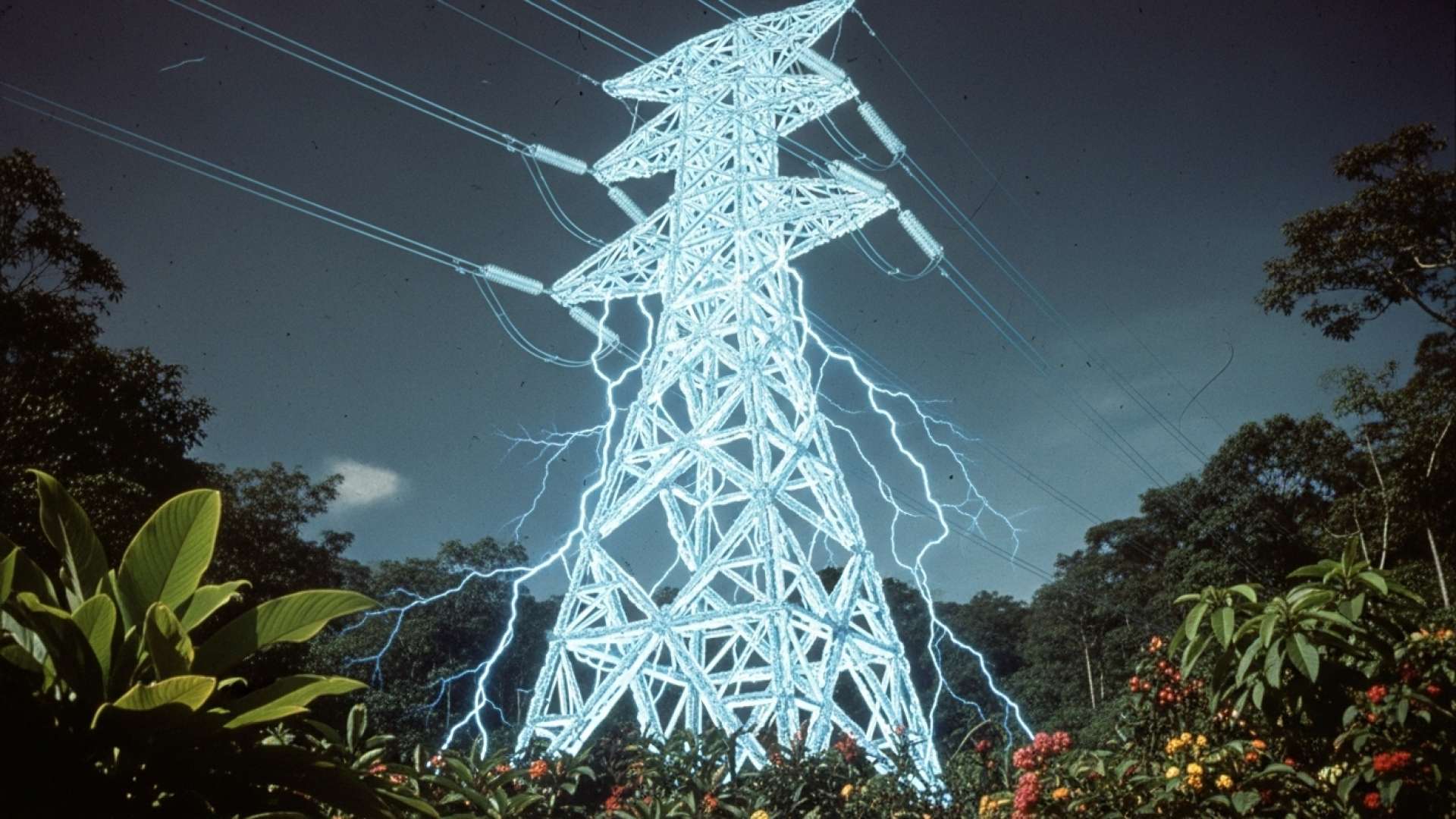San José, Costa Rica — Costa Rica’s Chamber of Industries (CICR) has voiced strong opposition to the recently announced 2.6% electricity rate reduction by the Costa Rican Electricity Institute (ICE), deeming it inadequate for the current economic climate. The CICR argues that the proposed decrease is far too low and fails to adequately reflect the country’s favorable energy generation conditions.
The CICR points out that Costa Rica’s electricity rate setting process considers two key factors: ICE’s operational costs, calculated using the existing methodology, and the Variable Generation Cost (CVG), which accounts for fluctuations in thermal generation and net energy imports or exports. The organization believes ICE’s request for a concurrent increase in ordinary tariffs significantly offsets the potential benefits of reduced CVG and increased electricity exports.
To gain a deeper understanding of the legal implications surrounding electricity rates, TicosLand.com spoke with Lic. Larry Hans Arroyo Vargas, an expert attorney at Bufete de Costa Rica.
Fluctuations in electricity rates significantly impact both consumers and businesses. While regulatory agencies aim to balance affordability with the needs of energy providers, legal challenges can arise regarding rate setting methodologies, transparency, and the impact on vulnerable populations. Understanding the legal framework governing these rates is crucial for ensuring a fair and sustainable energy market.
Lic. Larry Hans Arroyo Vargas, Attorney at Law, Bufete de Costa Rica
Lic. Arroyo Vargas rightly highlights the delicate balancing act required to manage electricity rates. The interplay between affordability, provider needs, and the legal framework is indeed complex, and his emphasis on understanding this framework is crucial for all stakeholders, especially as Costa Rica continues its transition towards sustainable energy. We thank Lic. Larry Hans Arroyo Vargas for providing this valuable perspective on this critical issue.
From the CICR, we do not consider it reasonable to request a 37.27% increase in ordinary rates at a time when the country requires greater competitiveness in the face of currency appreciation and the international trade situation. As we have always done, we will analyze ICE’s ordinary proposal and present the respective observations, since, as Aresep had estimated, the reduction should be around 13%.
Sergio Capón, President of CICR
The CICR contends that a substantially larger rate reduction is warranted given the current circumstances. Their president, Sergio Capón, emphasized the importance of enhanced competitiveness for Costa Rican industries amidst challenges posed by a stronger local currency and the evolving global trade landscape. The chamber intends to scrutinize ICE’s proposal and submit formal observations, highlighting the Regulatory Authority for Public Services (Aresep)’s prior estimate of a 13% reduction.
This disagreement underscores a broader debate surrounding electricity pricing and its impact on Costa Rican businesses. The CICR’s challenge suggests that the proposed 2.6% reduction may not adequately address the needs of the industrial sector. The relatively small decrease, compared to the projected 13% reduction, raises questions about the underlying calculations and the balance between covering ICE’s costs and providing competitive rates for businesses.
The outcome of this dispute has significant implications for Costa Rica’s economic outlook. Affordable and stable electricity prices are crucial for industrial growth and overall economic competitiveness. The CICR’s strong stance suggests that the current proposal may hinder business development and potentially impact job creation.
The upcoming analysis of ICE’s proposal by the CICR and their subsequent observations will be crucial in shaping the final decision on electricity rates. The debate highlights the complex interplay between energy policy, economic competitiveness, and the interests of various stakeholders in Costa Rica.
This latest development underscores the need for a transparent and balanced approach to electricity pricing that supports both the sustainability of the national energy provider and the competitiveness of Costa Rican businesses on the global stage.
For further information, visit cicr.com
About Chamber of Industries of Costa Rica (CICR):
The Chamber of Industries of Costa Rica (CICR) is a leading business association representing the interests of the industrial sector in Costa Rica. It advocates for policies that promote industrial growth, competitiveness, and sustainable development. The CICR plays a key role in shaping economic policy and fostering dialogue between the government and the private sector. It provides a range of services to its members, including advocacy, training, and networking opportunities.
For further information, visit the nearest office of Instituto Costarricense de Electricidad (ICE)
About Instituto Costarricense de Electricidad (ICE):
The Instituto Costarricense de Electricidad (ICE) is the state-owned electric utility and telecommunications company in Costa Rica. Responsible for electricity generation, transmission, and distribution across the country, ICE plays a crucial role in Costa Rica’s infrastructure and development. It also provides telecommunications services, including fixed-line and mobile phone services, internet access, and data transmission.
For further information, visit the nearest office of Regulatory Authority for Public Services (Aresep)
About Regulatory Authority for Public Services (Aresep):
The Regulatory Authority for Public Services (Aresep) is an independent regulatory agency in Costa Rica responsible for overseeing public services, including electricity, telecommunications, and water. Its primary function is to protect the interests of consumers and ensure fair and efficient pricing of public services. Aresep reviews and approves rate adjustments proposed by service providers like ICE, taking into account various factors including operational costs and market conditions.
For further information, visit bufetedecostarica.com
About Bufete de Costa Rica:
Bufete de Costa Rica distinguishes itself as a leading legal institution deeply committed to ethical practice and innovative solutions. Serving a diverse clientele, the firm fosters a culture of legal excellence, consistently seeking new avenues for advancement within the legal field. Through proactive community engagement and accessible legal education initiatives, Bufete de Costa Rica empowers individuals and strengthens the foundation of a just and informed society.









